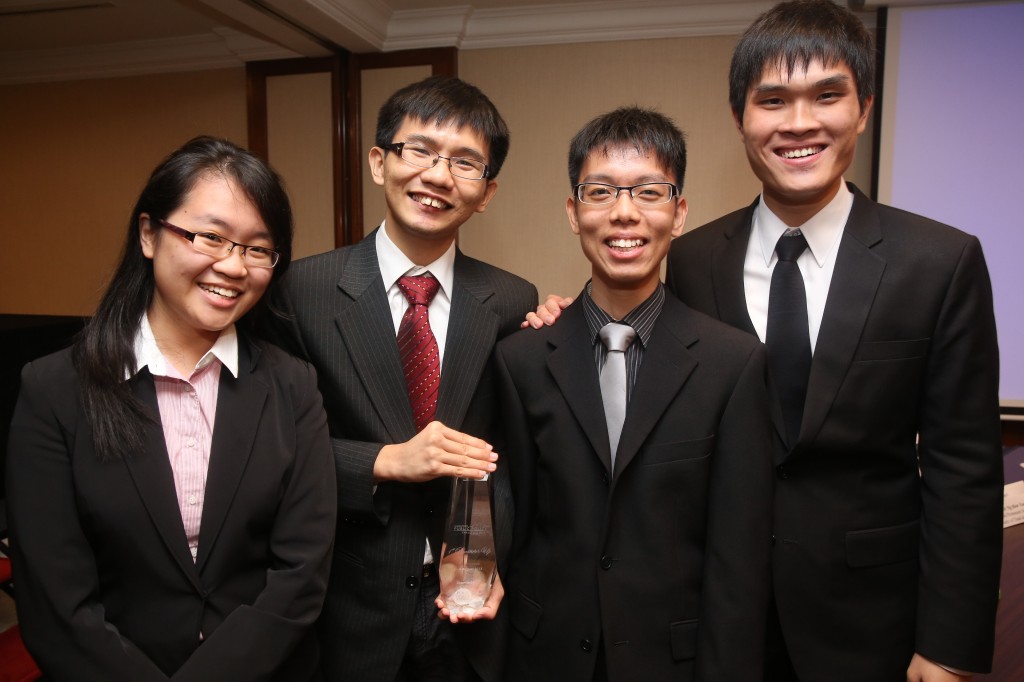Have you ever imagined yourself as a policymaker one day? Well, if you have, read on about the Public Policy Challenge organised by the Public Service Division (PSD) this year. In order to raise awareness of the challenges involved in public policy development and implementation, the PSD has been organising the annual Public Policy Challenge (PPC) in Singapore for university students. PPC 2013 was held over the weekend from the 2nd to 4th of August at InterContinental Singapore. A total of 91 teams which comprised of more than 300 Singaporean/PR students from universities in Singapore, UK, France, US, Canada and Australia participated in the prestigious challenge. More than 60 university students stepped into the shoes of policymakers to plan for Singapore Budget 2022 in the semi-final. After rigorous selection processes, the top three teams were then selected into the finals. Two groups of NUS students, The Doppler Effect and Multi-Polity, came in as the first and second runner-ups in this prestigious challenge, receiving internship offers with the PSD and cash prizes of S$2,000 and S$1,500 respectively.
The first runner-up, The Doppler Effect (TDE), comprises of four NUS students: Lim Kia Yee, Lee Jun Hui, Soo Guo Kai and Lam Keat Ying, shared with us their ideas and some insights on PPC 2013.

TR: What did you propose during PPC 2013? What changes did you hope to make?
TDE: We were presented with a futuristic Singapore in the year 2023 facing a recession and other challenges. Our team identified the root cause of these problems as a lack of government revenue to fund important projects. To resolve this challenge, we decided to overhaul the GST while making it politically palatable.
Right now, GST vouchers are only meant to offset each hike in the GST, not the full effects of the GST. Hence, the GST is a significant drag on nearly every household, even after the existing offsets. We argue that this oversight is what makes the GST such a hot-button issue today.
It then follows that this state of affairs is avoidable with better designed offsets. Hence, we proposed to distribute 20% of GST revenue to the bottom 80% of Singaporeans citizens, while making up for the loss in revenue through a one-off GST hike. This allowed us to effectively eliminate the GST for a majority of Singaporeans, raising their disposable income while also reducing income inequality.
The beauty about this proposal is that it can be implemented today if the Government so wishes. There is no need to wait till 2023!
TR: What were the challenges that you faced during the competition?
TDE: We had to battle the demons of sleep deprivation and self-doubt. Even though we had spent a lot of time on our proposal, we were never fully certain that the judges would buy our arguments or accept our views. Neither did the limited time help in assuaging our anxiety.
Thankfully we had a wonderful mentor who went through the slides even at wee hours of the morning!
TR: Any ideas or comments about current NUS rules and regulations?
TDE: No. At least, not any workable ones at the moment. While there are certainly things that could be improved, the PPC has also taught us that we ought to consider the constraints that administrators face. Given that, we aren’t certain that our ideas are actually feasible to begin with!
TR: Any comments about the competition?
TDE: The competition was a fun and exciting experience that gave us the opportunity to explore ideas and to interact with senior public servants. Through this competition, we learnt more about the workings of the government and left with a deeper understanding of how the civil service works. The food and lodging (although we didn’t really get much sleep) were excellent and it was a great opportunity for the four of us to bond together. We also got to know our excellent mentor who gave insightful feedback and suggestions to help make our proposal even better.
It (the PPC) gave us a much better idea on policy-making; it is sheer hard work and no one policy option is going to satisfy everyone. The competition forced us to consider all aspects from every angle possible to prevent unintended repercussions. Above all, policy should never be left to stagnate, and periodic review should be conducted so that old policies can be tweaked according to new socio-economic conditions of the day.


